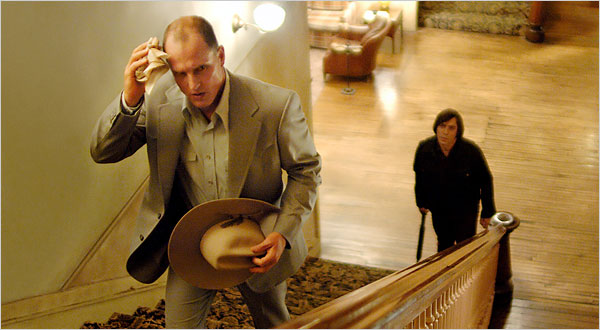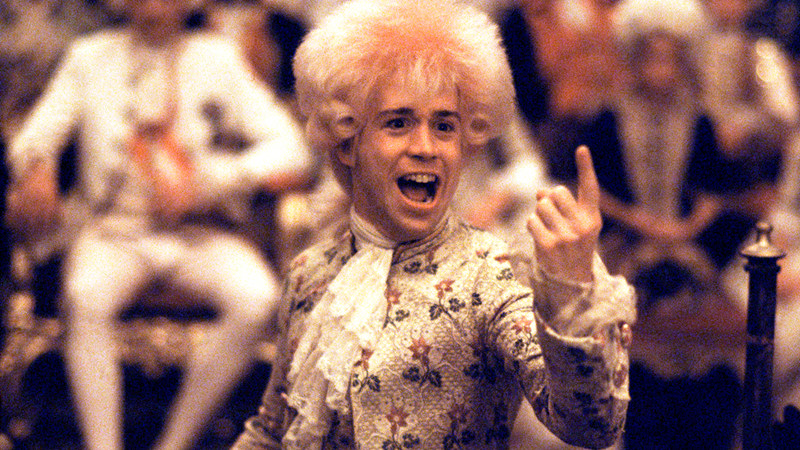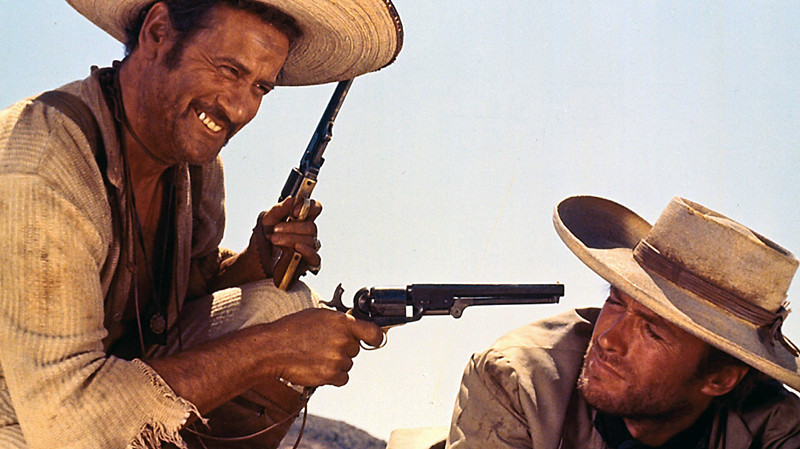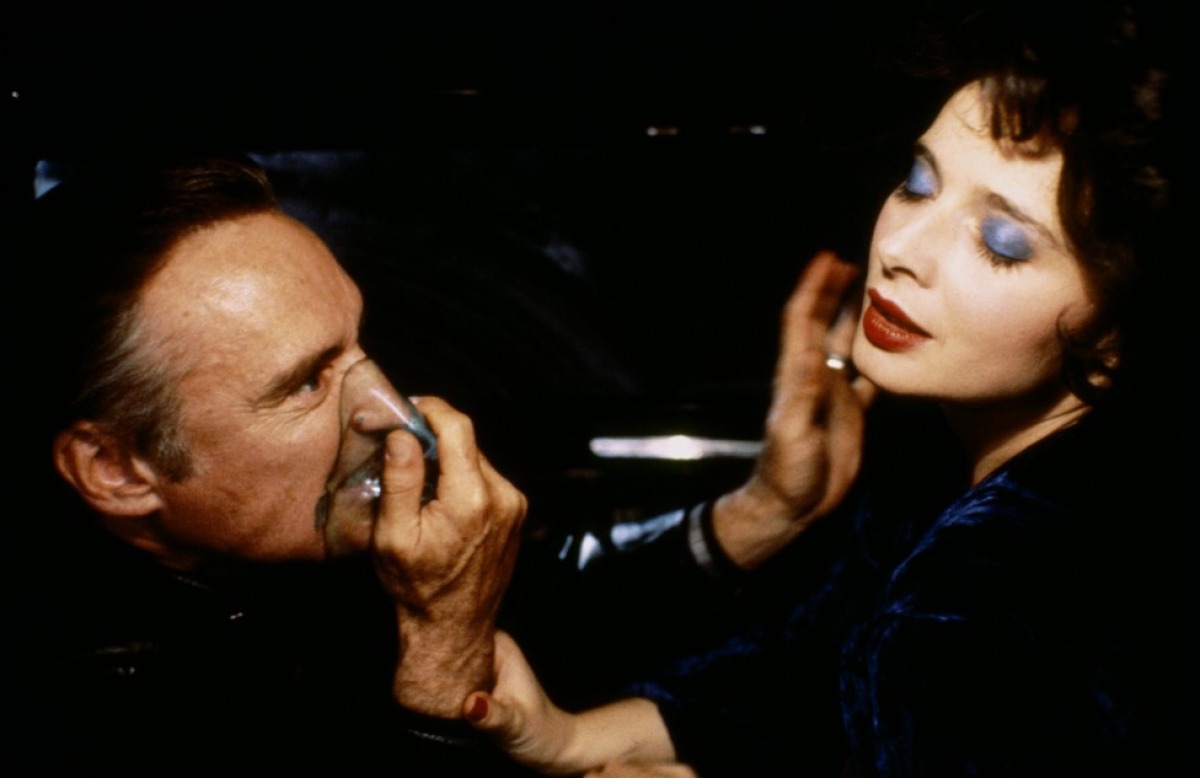
Some of the greatest dramas are comedies in disguise. It’s not hard to see, with a modicum of discernment, that comedy and conflict are two sides of the same coin. Comedy serves tragedy and vice versa, and those films which extend a link between the two are conceptual wet dreams. Layers are revered in art; genre uncertainty signifies genius, and film is no different. Therefore, you won’t see movies that are unintentionally funny; where misexecution turned serious films into laughing stocks, like what happened with The Room.
The following films are unquestionably dramatic but contain extremely funny moments or an underlying humor. While people may call such movies black comedies, comedy is a subjective term, so we used an objective arbiter to decide which movies were non-comedies. Surprisingly, the most nuanced genre definition came from Wikipedia, even over the likes of IMDB and Rotten Tomatoes. These movies were not recognized as comedies by any categorical measure in Wikipedia’s expansive collection and organization of genre, which merited their inclusion.
Conversely, this means hilarious dramas like Fargo, Pulp Fiction, Trainspotting, and American Psycho won’t be on this list because of Wikipedia’s strict definition of the genre. They’re considered comedies like any other. You’ll only see movies that escaped the confines of the definition to bloom as paragons of multidimensional filmmaking.
Warning: Spoilers
10. No Country for Old Men

Behind the measured evil of Anton Chigurh lies a dry humor only the Coens could pull off. The long-reigning kings of black comedy attempted the first pure thriller of their careers with No Country, but that classic Coen wit could not be fully eradicated.
The film is so tense that those spaces without brute violence which detail the humdrum moments of everyday life are so comparably absurd that one cannot help but smirk at the dichotomy. Such scenes like the standoff with the trailer park receptionist offer comedic respite from the barbarity, and even Chigurh has a wry smile on his face—mirroring the audience’s ironic awareness at a pardon granted by Chigurh for his own amusement. He’s a self-aware monster; the scariest monster of all.
The Coen brothers cannot be given full credit for such brilliantly subtle comedy. It’s easy when adapting a text by Cormac McCarthy, whose novels contain comedic flourishes within dark narratives. No Country for Old Men the book is darkly funny as well—you just have to read between the malign.
9. Amadeus

Like a Popeian satire, Amadeus is humorous because the rivalry between two opulent composers is expanded to such ridiculous proportions that one can’t help but laugh.
Salieri and Mozart serve as aristocratic Tom and Jerry in this 1984 hysterical and historical drama by Milos Forman. The knowledge that the film is inspired by true events enhances the comedy, as one can’t believe the extreme lengths Salieri goes to supplant Mozart for the tile of greatest composer.
Though Salieri is a wonderfully vindictive villain, it is Mozart who takes the comedic cake. He is portrayed as immature, bombastic, perverted, socially inept, and possessing an obnoxious laugh that halts any conversation he’s a part of. There are scenes of him farting, fondling large-breasted women, and making shockingly inappropriate comments to all he converses with, to the chagrin of those who must tolerate the maestro so to not inhibit his genius.
He loves sex, jokes, and flatulence—sometimes intermingled—and whether this is representative of the true Mozart is up for debate, though it makes for one entertaining character.
8. The Good, the Bad, and the Ugly

It is the Ugly who shines comedically in this western classic. Tuco, one-third of the film’s proantagonists, is a bumbling, husky Mexican criminal who plays comic relief to his sadistic and serious counterparts. Their interplay during the race for the buried treasure is one of cinematic notoriety not just for the well-paced action and suspense but for the character development among the triumvirate opponents.
His chemistry with Clint Eastwood’s Man with No Name character–whom Tuco so reverently calls “Blondie”—is especially noteworthy, producing comedy gold on par with the slapstick duos of the silent era. Their relationship, beginning on rough terms as Tuco kidnaps Blondie and demands his assistance to find the treasure, alternates between parasitic and beneficial, though a subtle respect forms during a journey paved with incredible circumstances survived with mutual cunning.
The conclusion of this co-dysfunction is Blondie tying Tuco’s arms and hanging him from a noose above his share of the gold. Thankfully, Blondie doesn’t let Tuco die. He shoots the rope and Tuco falls onto the gold, free of death, newly rich, but hands still tied behind his back. The film ends as Tuco curses Blondie who, smiling, rides into the sunset. It’s a strange relationship, but one that’s funny and sometimes sweet.
Since The Good, the Bad, and the Ugly is a spaghetti western, the film doesn’t always take itself seriously, fostering moments of hilarity in a notoriously serious genre.
7. Dogtooth

The forbearer of 2015’s transgenred mindbender The Lobster, Dogtooth is a disturbing film which, unlike The Lobster, leaves comedy off its marquee. Chronicling a deranged father who isolates his family from the outside world, the film is chalk full of stomach-weakening scenes worthy of body horror. Perhaps you could call Dogtooth a horror, or at the very least psychological thriller, but many would be reluctant to call it a comedy—if it weren’t for the obviously absurd sequences orchestrated by a clearly sardonic mind.
What Dogtooth does is hide comedy in the open. The comedy’s right there for the taking, in the scenes with the children barking, the random dance numbers, and melodic toenail clipping, but the plot and cinematography submerge the comedy in abject discomfort, so that when the punchline comes, it’s received with a shiver instead of laughter. It’s as if one’s comedic sense is temporarily compromised; the wires crossed from humor to fear and nausea. However, once you see the forest for the trees, you can laugh with the full potency Dogtooth deserves.
Some critics saw the humor through the sickness, and while this was not the popular consensus, enough people praised its comedy to not be a misreading. Dogtooth’s director, Yorgos Lanthimos, followed it up with The Lobster, a still disturbing but more transparently funny film, which is, for us, the confirmation of a thematic ideal conceptualized in Dogtooth.
6. Blue Velvet

Lynchian films are not without humor, though it’s often met with unease, as if you’re unsure whether what you are seeing should be laughed at. But of course it should. Lynch is an ambassador of the absurd, so to not laugh at an inherently comedic contradiction is a disservice to common sense. While much of Lynch’s humor is through atmosphere and abstraction, his insertion of Dennis Hopper’s character in Blue Velvet is the most unambiguous comedy of his entire filmography.
Dennis Hopper is just one piece of the surrealist puzzle that is Blue Velvet, but he made the most of his screen time, becoming—as he so often did—the most memorable part of the movie. His helium-fueled, psychopathic character Frank Booth is straight out of a 2000s comedy in 1986. He does impulsive things, screams nonsensically, yells about Pabst Blue Ribbon, and plays Roy Orbison at the most inappropriate times. He could be a quirky YouTuber in today’s environment.
That YouTube dig was not a reflection on Dennis but on modern comedy. Lynch’s sensibilities were ahead of their time, and Hopper was the perfect vessel. We can’t help but think that Hopper’s portrayal infested the minds of nascent comedy writers who would exploit the randomness humor for this randomness culture.